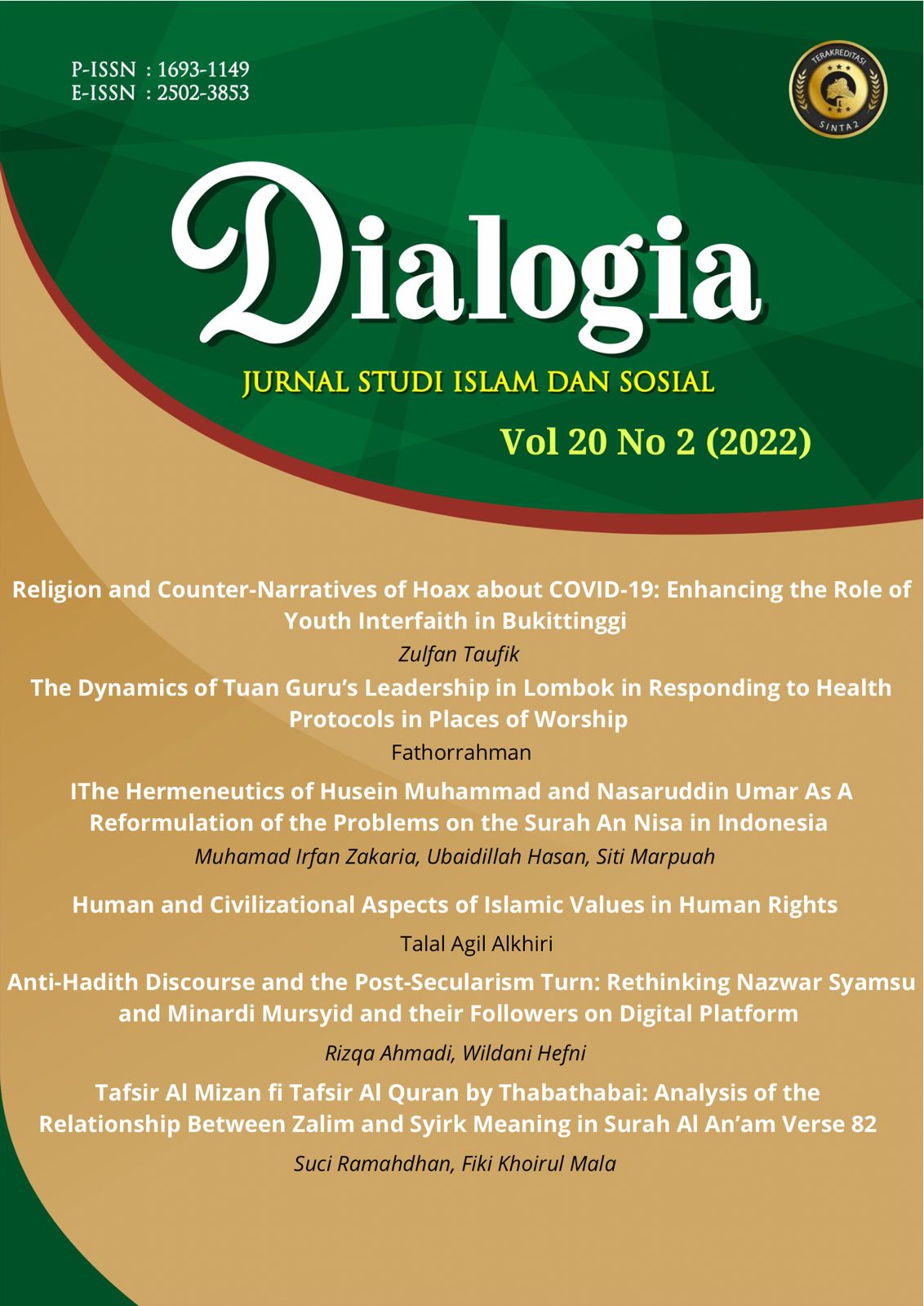Anti-Hadith Discourse and The Post-Secularism Turn: Rethinking Nazwar Syamsu and Minardi Mursyid and their Followers on Digital Platform
DOI:
https://doi.org/10.21154/dialogia.v20i2.5067Keywords:
AHG, post-secularism, digitalAbstract
The Indonesian Anti-Hadith Group (AHG) thought has never been extinguished. No matter how big the public’s rejection of their ideas, that’s how significant their resistance is. This article aims to reveal the Anti Hadith discourse, especially in post-secularism, which is considered momentum for religious openness. Through the virtual ethnography method, this article argues that in the post-secular era, the activities of AHG followers are increasingly dynamic. They build the network, revive and publish the founders’ thoughts, and appeal to followers through digital platforms. Post-secularism, which is marked by the decline of the privatization of religion in the public sphere, opens up opportunities for Islamic discourses, including the Anti-hadith discourse. The implication, on the one hand, is that religion is no longer a matter of privacy that is separated from the public sphere. On the other hand, the current Anti-Hadith thought potentially challenges the sources of Islamic law. This fact becomes a paradox that post-secularism is usually characterized by religious desire. Still, on the contrary, the presence of AHG stimulated controversies in the mid of Indonesian Muslim communities.











